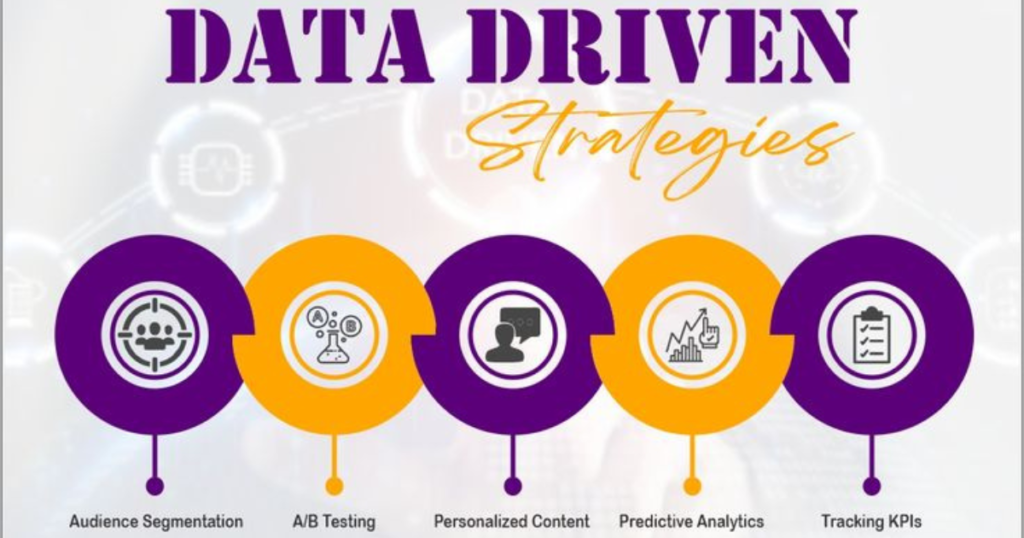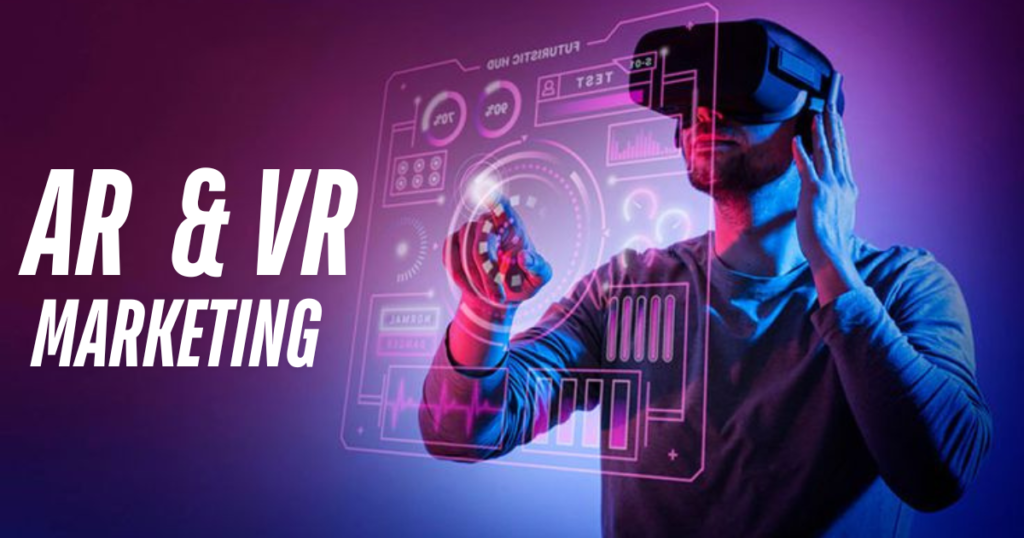Proven Content Marketing Strategy with a Digital Marketing
Takori
April 5, 2025

Introduction:
In today’s fast-paced digital world, a well-crafted content marketing strategy is the key to business success. It helps brands connect with their target audience, build trust, and drive conversions. However, creating a strategy that truly works requires expertise, time, and data-driven decision-making.
A digital marketing agency can help with this. With experience in SEO, content creation, and distribution, agencies craft strategies that boost visibility and engagement. In this guide, we’ll explore how to develop a successful content marketing strategy and why partnering with experts can elevate your brand’s online presence.
Understanding the Core Elements of a Content Marketing Strategy
A successful content marketing strategy goes beyond just writing blog posts—it requires a structured approach to creating and distributing valuable content. To achieve this, businesses must focus on three essential pillars: goal setting, audience research, and competitive analysis.
Setting Clear Business and Marketing Goals
Every content marketing strategy should begin with well-defined objectives. Ask yourself:


Aligning content goals with business objectives ensures that each piece of content serves a purpose. Whether it’s increasing website traffic through SEO content strategy or driving sales through targeted content distribution, clarity in goals is the foundation of success.
Identifying Your Target Audience and Their Pain Points
Understanding your target audience is critical. Without knowing who you are speaking to, even the best content will fail to engage. Consider:
- Demographics: Age, location, gender, and occupation
- Psychographics: Interests, values, and online behavior
- Challenges: What problems do they need solutions for?
Using data-driven content strategies and AI-powered insights, businesses can create personalized content that resonates with their audience. A digital marketing agency plays a key role in refining these insights and tailoring content accordingly.
Competitive Analysis: Learning from Industry Leaders
To stand out, businesses must analyze what their competitors are doing well and identify gaps in their strategies. Conducting a competitive content audit helps:
- Discover content formats and topics that perform well
- Identify SEO keywords competitors rank for
- Understand the strengths and weaknesses of existing strategies
By leveraging AI in content marketing and competitive research, businesses can craft a strategy that not only follows industry best practices but also introduces unique, high-value content.

The Strategic Role of a Digital Marketing Agency in Content Marketing
Creating a successful content marketing strategy requires more than just producing content—it demands expertise in SEO, audience targeting, and distribution. A digital marketing agency plays a crucial role in ensuring your content reaches the right people, ranks higher on search engines, and drives measurable results. Let’s explore how agencies enhance content marketing efforts.
Expertise in Market Research and Audience Targeting
One of the biggest challenges businesses face is understanding their target audience and crafting content that resonates. A digital marketing agency conducts in-depth market research to:



Using advanced tools like Google Analytics, SEMrush, and AI-driven insights, agencies refine content strategies to ensure maximum engagement and relevance.
SEO Integration and Keyword Optimization
Even the best content won’t succeed if it isn’t SEO-optimized. A content marketing strategy must align with search intent to improve visibility. Agencies specialize in:



By leveraging SEO content strategies for digital marketing, agencies help businesses rank higher and drive organic traffic.
Creating High-Quality, Engaging, and Diverse Content
A digital marketing agency ensures that content is not only SEO-friendly but also high-quality, engaging, and diverse. They create:



By integrating storytelling in content marketing, agencies create compelling narratives that connect with the audience and drive conversions.
Leveraging AI and Automation for Content Success (Missing from Competitors)
The rise of AI in content marketing has changed how content is created and distributed. Agencies use:



With content marketing automation tools, businesses can scale content production while maintaining quality and relevance.

Developing a Data-Driven Content Strategy
A successful content marketing strategy isn’t built on guesswork—it’s powered by data and analytics. Businesses that leverage data-driven content strategies create more engaging, relevant, and high-performing content. A digital marketing agency plays a key role in analyzing user behavior, optimizing content, and ensuring that every piece delivers measurable results.
The Importance of Data in Content Marketing
Data helps businesses understand:



By analyzing search trends, audience behavior, and performance metrics, businesses can refine their content to achieve better outcomes.
Using AI and Analytics to Guide Content Creation
Modern content marketing strategies leverage AI and analytics to make data-backed decisions. This includes:



By integrating AI in content marketing, businesses can predict what content will perform best before even publishing it.
Tracking and Measuring Content Performance
To continuously improve, businesses need to measure their content marketing ROI. A digital marketing agency helps track:



Using tools like Google Analytics, SEMrush, and heatmaps, agencies refine content strategies for maximum impact.
Predictive Content Trends and Performance Optimization (Missing from Competitors)
Businesses must stay ahead of evolving content marketing trends to maintain their competitive edge. This includes:



By adapting to future trends, businesses can future-proof their content marketing strategies for long-term success.

Content Formats and Distribution Channels
A well-structured content marketing strategy isn’t just about creating content—it’s about choosing the right formats and distribution channels to maximize reach and engagement. A digital marketing agency ensures that content is tailored to the right audience and delivered through platforms where it will have the most impact.
Choosing the Right Content Formats
Different types of content serve different purposes. The most effective strategies use a mix of formats to engage diverse audience segments:
1. Blog Posts & Articles
- Ideal for driving organic traffic through SEO
- Establishes brand authority and thought leadership
- Best for answering audience queries through informational content
2. Videos & Webinars
- Higher engagement rates than text-based content
- Effective for storytelling in content marketing
- Works well on social media platforms and YouTube
3. Infographics & Visual Content
- Great for summarizing complex information
- Boosts social media shares and backlinks
- Increases content retention for visual learners
4. Case Studies & Whitepapers
- Showcases real-world success stories
- Establishes credibility and industry expertise
- Ideal for B2B content marketing and lead generation
5. Podcasts & Audio Content (Expanding Beyond Competitors)
- Appeals to mobile users and multitaskers
- Builds a loyal audience through consistent engagement
- Increasingly popular in niche content marketing strategies
By using a combination of these content formats, businesses can increase audience engagement and boost content visibility across multiple platforms.
Omnichannel Content Distribution Strategies
Creating great content isn’t enough—it must be distributed effectively. A digital marketing agency ensures content reaches the right people at the right time through omnichannel distribution:
1. Website & Blog
- The primary hub for all content
- Helps with SEO optimization and brand authority
- Essential for driving organic search traffic
2. Social Media Marketing
- Platforms to use: Facebook, Instagram, LinkedIn, Twitter, TikTok
- Tailored content for each platform’s audience behavior
- Increases brand engagement and shareability
3. Email Marketing
- Directly reaches the audience’s inbox
- Greater return on investment as compared to alternative digital marketing tactics
- Best for nurturing leads and retaining customers
4. Paid Advertising & Sponsored Content
- Boosts content reach through Google Ads, Facebook Ads, LinkedIn Ads
- Targets specific audience segments for higher engagement
- Works well with high-value content like whitepapers and case studies
5. Influencer & Affiliate Marketing (Expanding Beyond Competitors)
- Leverages industry experts to promote content
- Builds credibility through trusted voices in the industry
- Increases traffic through word-of-mouth marketing
Optimizing Content for Each Platform’s Unique Audience
Each platform has its own algorithm, user behavior, and content consumption patterns. A data-driven content marketing approach helps optimize content accordingly:
- Google & Blog SEO: Use long-form content, keywords, and backlinks
- Instagram & TikTok: Focus on short, engaging videos and visual storytelling
- LinkedIn: Publish professional thought leadership articles
- YouTube: Create longer, educational video content
- Email Marketing: Personalize subject lines and content for higher open rates
By strategically repurposing content across these platforms, businesses maximize reach and engagement while maintaining consistency.

Leveraging SEO for Maximum Content Visibility
Even the best content will go unnoticed if it isn’t optimized for search engines. SEO (Search Engine Optimization) is the backbone of a successful content marketing strategy, ensuring that content ranks higher, attracts the right audience, and drives organic traffic. A digital marketing agency plays a key role in implementing data-driven SEO strategies that improve content visibility and boost conversions.
Understanding SEO’s Role in Content Marketing
SEO isn’t just about adding keywords—it’s about aligning content with search intent and optimizing it for user experience (UX). Businesses that integrate SEO into content marketing benefit from:



By focusing on on-page, off-page, and technical SEO, businesses can maximize their content’s reach and impact.
On-Page SEO: Optimizing Content for Search Engines
On-page SEO ensures that content is structured and optimized for search engine algorithms while remaining engaging for readers. Key elements include:
1. Keyword Optimization
- Integrating primary, secondary, and long-tail keywords naturally
- Using semantic keywords to cover related search queries
- Including keywords in headers, meta descriptions, and titles
2. Content Structuring for Readability
- Using short paragraphs, bullet points, and subheadings for better engagement
- Writing in an easy-to-read tone to increase retention
- Incorporating internal linking for better navigation and SEO benefits
3. Multimedia Integration
- Adding high-quality images, infographics, and videos to increase dwell time
- Using alt text for images to improve accessibility and SEO rankings
- Embedding interactive content for a better user experience
Off-Page SEO: Building Authority and Backlinks
Off-page SEO enhances a website’s credibility by increasing brand authority through external links and digital PR strategies. Businesses can benefit from a digital:



By building a strong off-page SEO strategy, businesses can improve their domain authority (DA) and outperform competitors in search rankings.
Technical SEO: Ensuring a Smooth User Experience
Technical SEO ensures that content is easily accessible, fast-loading, and optimized for both search engines and users. This includes:



With Google’s Core Web Vitals update, optimizing for page experience metrics is crucial for higher search rankings and better user engagement.
The Future of SEO: Adapting to Evolving Search Trends (Missing from Competitors)
SEO is constantly evolving, and businesses must stay ahead of new trends. Future-focused SEO content strategies should include:



By staying updated with SEO trends and algorithm changes, businesses can ensure long-term content success in an ever-changing digital landscape.

Measuring Success: Tracking and Optimizing Content Performance
Creating and distributing content is only half the battle. To ensure a successful content marketing strategy, businesses must track key performance metrics and continuously optimize their approach. A digital marketing agency plays a crucial role in analyzing data-driven insights to improve content engagement, SEO performance, and conversion rates.
The Importance of Measuring Content Performance
Tracking content marketing metrics allows businesses to:



By regularly analyzing performance data, businesses can refine their strategies for maximum impact.
Key Metrics to Track for Content Marketing Success
A data-driven content strategy relies on tracking multiple metrics across different platforms. Essential content marketing KPIs include:
1. Website Performance Metrics



2. SEO Performance Indicators



3. Engagement & Social Metrics



4. Conversion Metrics



By analyzing these content marketing performance metrics, businesses can make informed decisions and improve ROI.
Tools for Tracking and Analyzing Content Performance
A digital marketing agency leverages advanced tools to measure and optimize content effectiveness. Some essential tools include:





By using these tools, businesses can refine their content marketing strategies for maximum effectiveness.
Continuous Optimization: Improving Content Based on Data
Tracking performance is just the first step. The next crucial phase is continuous optimization, which involves:




By implementing a data-driven content optimization strategy, businesses can maintain consistent growth and engagement.
Future Trends in Content Performance Analytics (Missing from Competitors)
The future of content marketing analytics is rapidly evolving. Businesses should prepare for:



By staying ahead of these trends, businesses can maintain long-term content marketing success.

The Role of a Digital Marketing Agency in Content Marketing Success
Partnering with a digital marketing agency can transform a business’s content marketing strategy by leveraging expertise, technology, and data-driven insights. From strategy development to execution and optimization, agencies ensure content reaches the right audience and drives measurable results.
Why Businesses Need a Digital Marketing Agency for Content Marketing
A digital marketing agency helps businesses:




By working with an experienced agency, businesses can achieve sustainable growth and brand authority.
Key Services Provided by a Digital Marketing Agency
1. Content Strategy & Planning
- Conducting market research & competitor analysis
- Identifying target audience personas
- Developing a comprehensive content calendar
2. SEO & Content Optimization
- Performing keyword research & competitive analysis
- Optimizing content for search engines and user experience
- Implementing on-page, off-page, and technical SEO strategies
3. Content Creation & Branding
- Composing blog entries and website material that is optimised for SEO
- Producing high-quality videos, infographics, and visual content
- Developing engaging social media and email marketing content
4. Multi-Channel Content Distribution
- Overseeing content on blogs, websites, and social media
- Managing paid advertising programs (LinkedIn, Facebook, and Google Ads)
- Collaborating with influencers & industry leaders for outreach
5. Analytics, Reporting & Continuous Optimization
- Tracking content marketing performance metrics
- Analyzing engagement, conversions, and audience behavior
- Implementing data-driven improvements for ongoing success
How to Choose the Right Digital Marketing Agency
Selecting the best digital marketing agency requires evaluating key factors:





By choosing a data-driven digital marketing agency, businesses can maximize their content marketing ROI.
Future Trends in Digital Marketing Agencies (Missing from Competitors)
To stay ahead in content marketing, agencies are adapting to emerging trends:




By integrating these next-gen marketing strategies, digital marketing agencies help businesses future-proof their content strategies.

Common Challenges in Content Marketing and How to Overcome Them
While content marketing is a powerful tool for business growth, it comes with its own set of challenges. Many businesses struggle with content consistency, audience engagement, SEO visibility, and ROI tracking. Partnering with a digital marketing agency can help navigate these hurdles effectively.
Identifying the Biggest Content Marketing Challenges
Understanding common content marketing roadblocks is the first step to overcoming them. The following are a few of the most urgent issues:





Addressing these challenges requires a strategic, data-driven approach.
Solutions to Overcome Content Marketing Challenges
1. Ensuring High-Quality, Valuable Content
- Conduct thorough research to provide original and insightful content
- Use a storytelling approach to make content more engaging
- Leverage multimedia (videos, infographics, podcasts) for richer experiences
2. Maintaining Consistency with a Content Calendar
- Develop a structured content plan with weekly and monthly topics
- Automate posting schedules using content management tools
- Repurpose existing content into different formats (e.g., blogs → videos)
3. Improving SEO and Organic Reach
- Conduct keyword research to target high-value search queries
- Optimize content with on-page SEO techniques (meta descriptions, headers, alt text)
- Build backlinks and internal links to improve authority and rankings
4. Increasing Audience Engagement
- Create interactive content (polls, quizzes, webinars)
- Use personalized content strategies based on audience segmentation
- Encourage user-generated content and community-driven discussions
5. Tracking Performance and Measuring ROI
- Use Google Analytics, SEMrush, and Ahrefs to monitor content performance
- Measure KPIs such as traffic, engagement, conversions, and retention
- Optimize content strategies based on real-time data insights
How a Digital Marketing Agency Helps Overcome Challenges
A digital marketing agency provides expertise in:




By leveraging an agency’s expertise, technology, and proven methodologies, businesses can eliminate content marketing obstacles and achieve long-term success.
Future Challenges in Content Marketing & How to Stay Ahead (Missing from Competitors)
With digital landscapes evolving, businesses must prepare for future content marketing challenges:




By anticipating these challenges, businesses can stay agile, innovative, and competitive in content marketing.

Future Trends in Content Marketing: What Businesses Need to Prepare For
Content marketing is constantly evolving, and businesses must stay ahead of emerging trends to remain competitive. As technology advances and consumer behavior shifts, a data-driven, adaptive content strategy is key to success. A digital marketing agency can help businesses leverage these trends for maximum engagement and ROI.
Why Staying Updated with Content Marketing Trends Matters
Failing to adapt to new content marketing trends can result in:



By staying informed and implementing innovative content strategies, businesses can maintain a strong digital presence and brand authority.
Emerging Trends in Content Marketing
1. AI-Driven Content Creation & Personalization
- AI-powered tools like ChatGPT and Jasper help create data-driven, engaging content
- Personalized content improves customer experience and conversion rates
- AI-driven chatbots enhance real-time audience interaction
2. Voice Search Optimization & Conversational Content
- With smart assistants (Alexa, Siri, Google Assistant) on the rise, voice search is growing
- Businesses must optimize content for natural language queries
- Conversational, FAQ-style content improves search engine visibility
3. Video & Interactive Content Domination
- Short-form videos (TikTok, Reels, YouTube Shorts) boost audience engagement
- Interactive content like quizzes, polls, and live Q&A sessions enhances retention
- Augmented Reality (AR) and Virtual Reality (VR) create immersive brand experiences
4. The Rise of AI-Generated SEO & Predictive Analytics
- AI-driven predictive analytics help businesses identify content opportunities
- Google’s AI advancements mean quality, intent-driven content ranks higher
- SEO strategies must adapt to real-time ranking updates and AI search engines
5. Content Marketing & Blockchain Technology
- Blockchain enhances content authenticity and copyright protection
- Decentralized content platforms allow greater transparency and control
- Smart contracts can secure influencer collaborations and digital advertising
The Role of a Digital Marketing Agency in Future-Proofing Content Marketing
A digital marketing firm assists companies in staying on top of trends by:




By working with an experienced content marketing agency, businesses can adapt to industry shifts and maintain sustained digital growth.
Preparing for the Future: Actionable Steps (Missing from Competitors)
To future-proof content marketing strategies, businesses should:




By staying ahead of these trends, businesses can drive higher engagement, brand loyalty, and long-term success.

Conclusion
Building a Future-Ready Content Marketing Strategy with a Digital Marketing Agency
A successful content marketing strategy requires more than just creating content—it demands strategic planning, audience insights, SEO optimization, and data-driven execution. By utilising a digital marketing agency’s experience, companies can:




The Significance of Collaborating with a Digital Marketing Agency
In today’s competitive digital landscape, working with a professional agency ensures businesses stay ahead by:
- Adjusting to changes in algorithms and industry trends
- Implementing cutting-edge content marketing techniques
- Measuring performance and optimizing for better ROI
Final Takeaway: Future-Proof Your Content Strategy
As content marketing trends evolve, businesses must stay agile and embrace innovations like AI, voice search, video marketing, and interactive content. A data-driven, adaptable content strategy will help brands maintain visibility, engagement, and long-term success.
By partnering with a digital marketing agency, businesses can scale their content marketing efforts, boost brand authority, and achieve sustainable growth in the ever-changing digital world.
Are you prepared to advance your digital marketing plan? Contact 360digisol today to learn how our data-driven approach can help you achieve better results and grow your business.
Contact us today for expert advice:


- 360DigiSol
Tag Post :
Socialize Your Business Using Social Media Marketing
Recent Post
Dont Hesitate To Contact Us
Stay updated with insightful articles and blogs covering the latest trends in digital marketing, IT solutions, and e-commerce.
